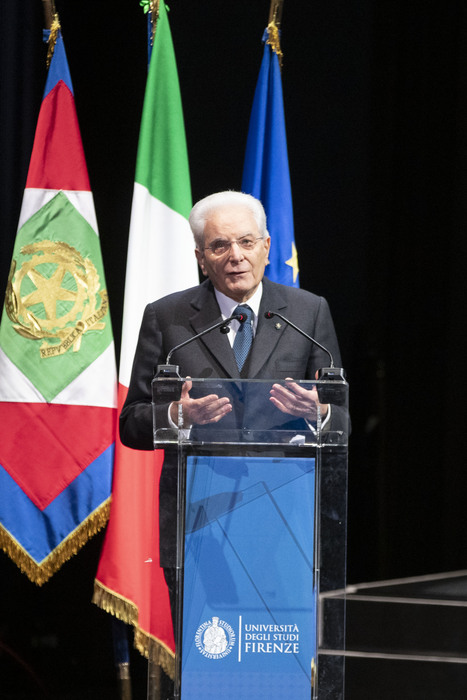President Sergio Mattarella on Friday denounced the "wall of silence and oblivion" that formed around the tragedy of the Foibe, the massacre of thousands of Italians by Tito's partisans in ethnic cleansing at the end of World War II.
"A wall of silence and oblivion - a mixture of embarrassment, political opportunism and sometimes serious superficiality -formed around the terrible suffering of thousands of Italians, massacred in the Foibe or swallowed up in concentration camps, driven en mass to abandon their homes, their possessions, their memories, their hopes, the lands where they had lived, when faced with the threat of imprisonment if not physical elimination," said Mattarella at a ceremony marking the Day of Remembrance at the Quirinale.
The 'Foibe' mass killings took place mainly in Friuli-VeneziaGiulia, Istria and Dalmatia against the local Italian population.
Foibe are narrow Carsic pits or gorges into which victims were thrown, sometimes alive.
It is estimated that as many as 15,000 Italians were tortured or killed by Yugoslav communists who occupied the Istrian peninsula during the last two years of the war.
Many of the victims were thrown into the narrow mountain gorges during anti-Fascist uprisings in the area and the exact number of victims of these atrocities is unknown, partly because Tito's forces destroyed local population records to cover up their crimes.
"In those martyred but lively border lands, which for centuries had been home to peoples, languages and cultures, alternating fruitful periods of coexistence with moments of conflict and clashes, the last century reserved the tragic and peculiar fate of setting side by side, just a few kilometers from each other in a grim geography of horror, two symbols of the catastrophe of totalitarianism, racism and ideological and nationalist fanaticism: the Risiera of San Sabba, a Nazi concentration and extermination camp; and the Foiba of Basovizza, one of the places where Tito's ferocity was exercised against the Italian community ," continued Mattarella.
The head of state said that the Foibe and the exodus represented a "painful trauma" for the nascent Italian Republic, "faced with the burdensome legacy of a country that had been defeated in the war".
"Those events constitute a tragedy that cannot be forgotten," insisted Mattarella.
"Tragic and harsh pages of history cannot be erased. Attempts at oblivion, denial or downplaying are an affront to the victims and their families and do inestimable damage to the collective conscience of a people and a nation," he concluded.
Foibe Remembrance Day was not set up until 2004, as the tragedy had been swept under the carpet by anti-Fascists in the postwar years.
At the end of January the cabinet approved the creation of a Museum of Remembrance of the Fiobe on the proposal of Premier Giorgia Meloni and Culture Minister Gennaro Sangiuliano.
"The creation of the museum is a historical duty towards the Istrian, Fiuman and Dalmatian exiles who suffered under Tito's communist dictatorship," said Sangiuliano after the cabinet meeting.
"These tragedies must not be forgotten. They are an important part of Italian history and must be known and understood by the new generations".
He said the Lazio region, which Rome belongs to, has pledged to make a building available for the museum.
And on Thursday the Lower House approved a bill on initiatives to promote knowledge of the Foibe tragedy and the Istrian-Fiuman-Dalmatian exodus among the younger generations.
ALL RIGHTS RESERVED © Copyright ANSA

